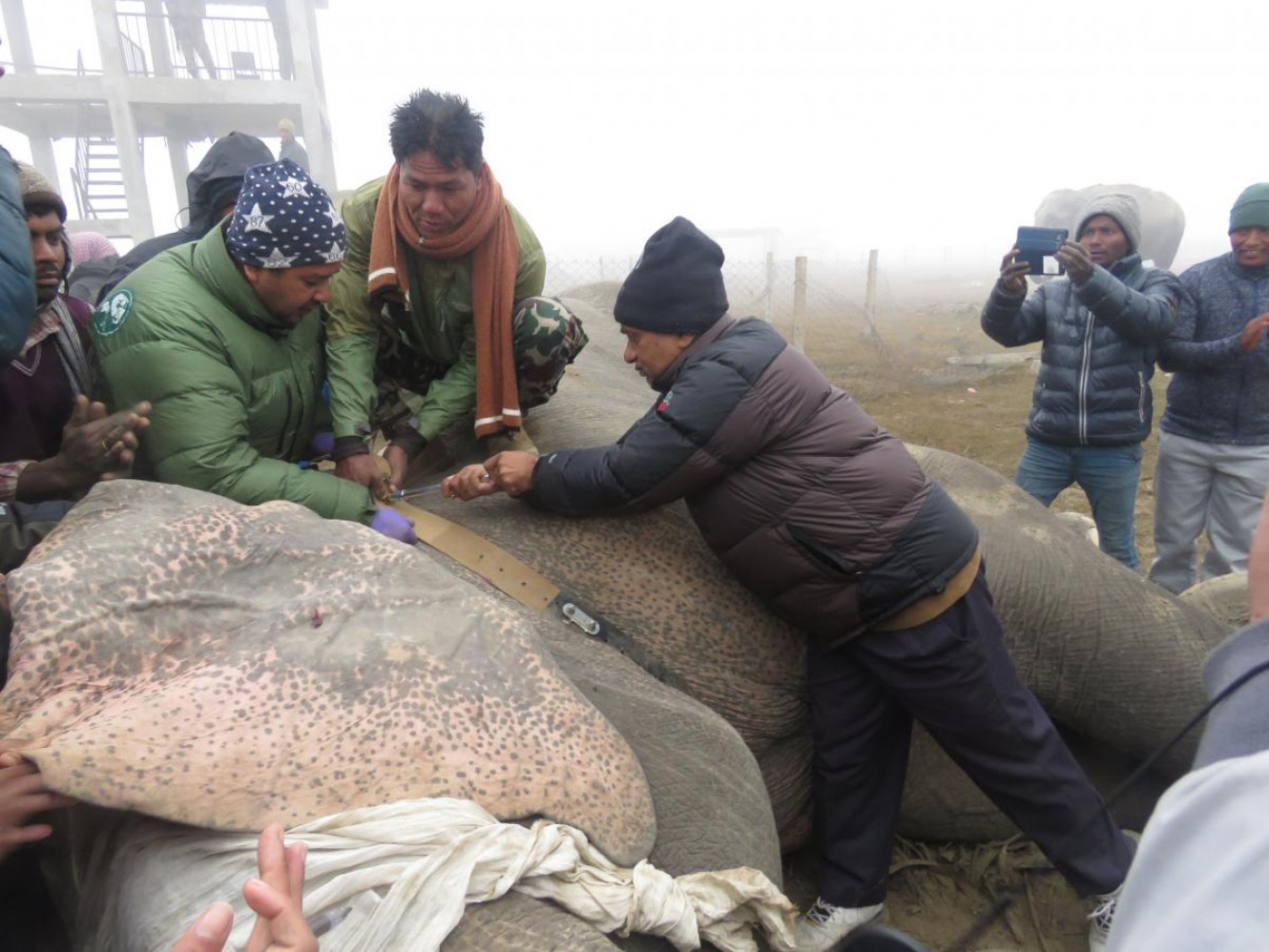
Shrilanka Darhe, a wild Asian elephant of the Koshi Tappu Wildlife Reserve (KTWR) in eastern Nepal had been the cause of much hostility lately within the local community – especially in the buffer zones of Saptari, Udayapur and Sunsari districts. Besides damaging property and farmers’ crops, Darhe’s hostility was even starting to take a toll on some of the pregnant captive elephants kept inside the Wildlife Reserve, primarily for patrolling purposes.
Given the community’s calling to redress this ongoing problem and considering the possible consequences of Darhe’s increasingly threatening behavior, a team comprising of members from NTNC and KTWR have successfully darted and radio-collared Darhe to assist in its monitoring. The assignment was carried out on January 12, 2018.
About a month ago on December 1, a similar exercise was undertaken to bring another conflict-causing wildlife elephant under monitoring. Koshi Makuna had already attacked and killed three locals before he was darted and satellite radio-collared. Ever since being released into its natural habitat, and after maintaining close observation, human causalities by Makuna have been zeroed. Initiatives such as these are crucial for making a case for the success of mitigating potential human-elephant conflict scenarios in the future.
The team from KTWR and NTNC are regularly tracking the movement of these problem-causing elephants and helping people and management authorities to take early action before any harm is incurred. At the same time, this also happens to be the first radio collar study of wild elephants in eastern Nepal. Data generated from the elephant tracking will be used to develop a long term human-elephant conflict management strategy for the region.
At the request of the Department of National Parks and Wildlife Conservation (DNPWC), the two problem-causing elephants have been radio collared and are being jointly monitored with the aim of promoting human-elephant co-existence while minimizing conflict incidents.
